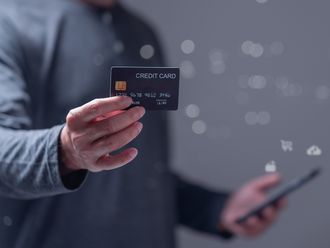
Dubai: Banks operating in the UAE can no longer stop payment against a cheque even when the cheque drawer’s account does not have enough funds to cover the full amount.
“In principle, the bank (the drawee) is obliged to pay the cheque’s value upon presentation where there is sufficient fund. It cannot refrain from paying, since this could affect the principal rights of the holder’s ownership of the cheque in return for payment,” the Central Bank of UAE (CBUAE) said in a clarification note.
The provision of partial payment in the amendment of Commercial Transactions Law that came into effect on January 2 makes it mandatory for banks to make a partial payment against the cheque to the extent of blance in the account if the beneficiary agrees to it.
Under the amended law, a bank’s discretionary powers in stopping a payment against a cheque is limited to just two instances, namely loss of the cheque and bankruptcy of the bearer.
Mandatory partial payment
The changes in the law makes it mandatory for banks to make partial payments against a cheque even if the balance in the drawers account is not sufficient to cover the entire value of the cheque.
Partial payment simply means to pay or settle part of the cheque’s value, and therefore, the drawer and all endorsers and guarantors (if any) are partially discharged.
“UAE law did not require that in order to pay the cheque’s value, the consideration for payment at the drawee’s bank should be equal to the cheque’s amount,” the CBUAE said in a note.
According to the amended law, where the consideration for payment is less than the value of the cheque, the bearer must require partial payment from the drawee up to the amount available.
The cheque’s bearer may accept partial payment of the cheque’s value and postpone the remainder, if that is deemed to be in her/his interest, if the drawer’s financial condition is poor, or if it is in his interest to save whatever can be saved from the debt.
Partial payment rules
While it is mandatory for the banks to make partial payments against a cheque that has insufficient funds, the cheque’s bearer (beneficiary) is not obliged to accept a partial payment.
While accepting a partial payment against a cheque, the bearer may request the drawee bank to mark the partial payment on the back of the cheque and the bank should issue a certificate along with it confirming the partial payment.
In the event of collection through the cheque bearer/beneficiary’s bank, the latter will give a certificate of partial payment to the cheque bearer/beneficiary. The bank should keep a copy of the partially-paid cheque and a copy of the partial payment certificate issued by it.
According to the law, the cheque bearer has the legal recourse for the remainder of the original cheque as an executive document after partial payment to go ahead with a civil case against the drawer, if the drawer refuse or has no capacity to pay.












